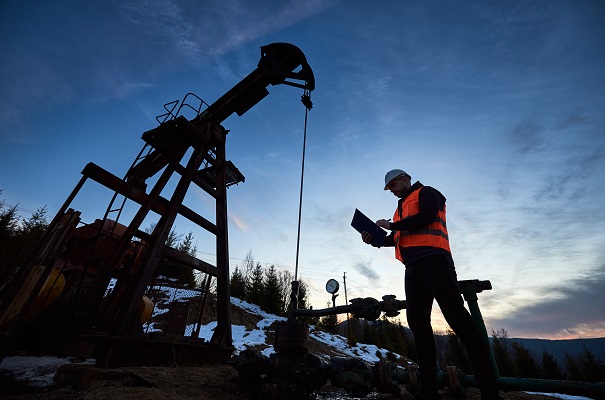Well, curious admissions from the IMF and feeding-through to the ONS. Everyone puts such store of value on economic statistics only to find that all the criticisms about our sluggish economy over the last few years were wrong… what is worse, however, is the deluge of commentators sarcastically loving to ‘rubbish’ the efforts of the British people and the results they have been achieving – what will they say next and will they accept they were misguided…?
It is disturbing however and projections are based upon the ‘realities’ and if these are not right… so it’s good news on the economy but does that mean the Bank of England will be more hawkish and press higher with interest rates to dampen inflation as a consequence? The Governor has suggested not and I hope not as it is ‘enough’ already. What is also positive is that the same statisticians will be able to use these higher figures in predicting the future and that includes tax receipts and public borrowing, so perhaps room for some selective tax cuts after all – not just ‘hand-outs’ but ones designed to cut the top-line of inflation too – are you listening Mr Chancellor!
Not affecting us whatsoever as we had zero with him but Woodford fundholders are going to receive another payment next year. The delays on this and the administrative catastrophe are unforgiveable really but there we are. I have shared already how this could have been managed better. The lessons for any investor to learn are:-
1. Why didn’t we have any money with the Company?
2. What funds or companies are we not supporting today and why not?
3. Spread your eggs very widely indeed, both for opportunities going forwards but also to avoid concentration risk, however wonderful you think a manager is or the individual asset class may be. That is exactly what we do with our client funds – no holding presently exceeds 2% of our total client assets.
Post

We have been having some problems with the postal service over the last few months… this has affected the submission of our quarterly valuations to clients (for which we are very sorry) but even some normal post took 14 days to travel from Barnstaple to Ilfracombe. We have had to request a full reprint from our administrators which will be going to mail by the close of business on Monday at the latest.
Royal Mail is normally so good, so dependable and whilst I know there have been staffing problems and some blockages, this is unacceptable. Let us trust that as the price of a first class stamps rises again to £1.25 on 1 October that the service will be restored fully to substantiate the very high cost! Just think, at the time of decimalisation in February 1971 first class was 3p… I know there is less post as there are now so many alternative message routes but pricing oneself out of the market won’t help either – rather than cutting prices to increase the volume of mail as the universal system is already in place… this is what Sir Roland Hill realised in 1839/40 when he introduced the Uniform Penny Post… we’d send more hard-copy material if the price was less, for example.
Oil

Shenanigans from Russia have made the oil price spike again. It’s nowhere near as bad as March 2022 but Brent is still up 25% since June for example. Whilst pump prices won’t react quite the same, as most of what we pay is refining and other costs and then colossal taxes on top, it will still affect transport and energy costs.
It also affects the myriad other applications of oil. This has seen oil stocks rise again, as they are direct beneficiaries of that and it reiterates the necessity to countries like the UK to do what it can to encourage use of our own wells to create greater oil security. And no, that is not a compromise to greening the planet and energy supplies universally.
We need to encourage exploration companies like Harbour Energy and Ithaca to keep using the North Sea too rather than encouraging them to divert their resources to explore in more poorly regulated parts of the World. Presently the taxes on these types of companies will be meaning that rather than raking-in a windfall, we take-in net zero… 100% tax on nothing is… nothing. 50% tax on say £25billion is £12.5billion… it really isn’t rocket science even if naïve political populism gets in the way. The latest offers for offshore windfarms have also received no bids – are costs and regulations a factor?
Private equity trusts

I have written before about these and the deep discounts to the underlying asset values at which pretty much all of them trade presently. The main reason is investor disinterest rather than anything else though yes, there are fears that the marketplace is likely to be down-valuing underlying assets across the ‘sector’ so some of that is being reflected too. Of course, managers have already reduced their valuation as well.
However, the realities are not supporting the pessimism. Caledonia, in which we have a stake, has just announced the sale of its holding in 7IM for £255million, so a £55million increase in the last accounts’ value and a useful profit over the purchase cost. So does this support such negativity in the Trust and indeed the sector? No – it is overdone. Meanwhile, Caledonia’s share price nudges upwards a tad… all good news!
Many of these trusts are buying-in and cancelling their own shares – as the best investment for their spare funds. If they can buy £1’s worth of assets at say 50p, then that means the remaining shareholders gain from each such purchase as they have more assets to share-out amongst a smaller number of shareholders! Several of these do enough like this to gain more than all their management fees for the year too but of course that isn’t allowed to be shown in the inane ‘total expense ratios’.
According to Winterflood’s, total buy-backs of Trusts in 2022 was £2.7billion, a record and for 2023 it is already £2.5billion. Each Pound is accretive for remaining investors.
More good news

Again, also sad news in that a good Trust is likely to wind-up. RM Infrastructure Fund, which we own, has walked away from a possible merger and proposes an orderly wind-up which may take four years say, for the last payment – but we can afford to wait. The shares are priced still at a level well-below the anticipated asset value and in the meantime we receive a very attractive income from the interest charges and other receipts the Fund levies on all its loans, etc.
Again, the extra value to us is the evaporation of the discount at which we have been buying into the Fund, a discount which is a special extra bonus beyond what the purpose of the fund has been since inception. Yes, we had been buying the asset at higher prices than the present levels but that doesn’t detract from the present position.
Investment trusts discounts and troughs

Readers know our keenness for these animals, with added value when discounts to the underlying asset values are so wide. The AIC has done some interesting research into past troughs of high discounts (March 2003, February 2009 & June 2016) and found that the annualised returns over the following three years from those low points were 34%pa, 22%pa and 9%pa respectively.
Of course, sometimes these points can be at market troughs generally but we are heartened, as often it is the same factors (a lack of enthusiasm by investors so they flee the markets) which actually mark general market negatives, suggesting big gains become possible from such pessimism. Indeed, thinking about this logically but such conditions stimulate withdrawals by investors but perhaps more importantly, those with cash sit on their hands too – two negatives. The opposite then becomes true on the upside.
Of course we can’t guarantee such improvement but meanwhile, we expect the winding-up of yet more Trusts so the unravelling of those individual discounts for the benefit of our Investors, whatever happens to the underlying market and sentiment. Whilst the results are averaged, the best bouncers were in smaller companies, private equity and more growth-orientated areas like emerging markets. As I type… Roundhill Music Fund has rocketed 64% on a bid for a price the shares themselves have never ever experienced… I wish we had held some!
Speculation

So Vietnam’s electric vehicle company floats on its market. It started producing cars five years ago. The float was successful – the company became worth more than Ford, General Motors and Volkswagen, valuing the company at $190billion. It’s since fallen back to a ‘mere’ $64billion. (For context, Tesco is $23billion). It is still valued (by speculators in its shares) at more than General Motors and Ford. Only Tesla and Toyota (at $785billion and $280billion respectively) are higher. It is expecting to produce 50,000 cars this year. GM sold 5.9million last year.
However, only 1% of the Company’s shares are freely available so the extreme ‘valuation’ was exaggerated. Jennifer Hughes in the FT on 2 September reminded us of last year’s flotation of Asian finance group AMTD Digital which jumped to a market capitalisation of $311billion. It is now about $1billion. This is one for the birds too.
Richard Buxton’s retirement

A stalwart of the UK investment industry has retired after a very successful and well-respected 40-year career and left a scathing comment about those who he perceives have had their engagement in ruining much of the UK investment landscape. He notes ‘for the first half of my career there was a liquid savings pool focused on investing in equities but that has been eroded by an unholy trinity of accountants, actuaries and regulators’.
I do see what he means – perhaps epitomised by the destruction of the final salary pension market place where ‘sensible investing’ was replaced by liability management – an entirely different game and blank cheques which most companies could ill afford – and hence why schemes don’t really exist in the private sector any more. It is where ‘well-intentioned’ has a catastrophically destructive effect when not adequately thought-through. It continues to be happening today.
Awards

Thank you to KMH Media for announcing we have been selected as a winner for an award in the M&A Today Global Awards 2024. This is as the leading financial adviser from Barnstaple and noted as ‘the most coveted and complete awards program’ and recognising dedication to excellence on a global basis. There is a range of ‘branding opportunities’ around the awards but we shall refrain from participating in that but thank you – whoever you are and whoever nominated us!
Vetting results

I was interested to see the announcement of a review into the vet industry which has transformed itself over the years and the concerns are that with so many people owning pets, the costs of treatments and reviews have rocketed exponentially, without apparent constraint and adding significantly to cost-of-living pressures on the many vulnerable people who own pets too. Changes would be welcome.
Other sectors which would benefit similarly cover opticians and dentists – I was reminded of that at my opticians when seeing you could use Klarna to buy your glasses!
My best wishes
Philip J Milton DipFS CFPCM Chartered MCSI FPFS FCIB
Chartered Wealth Manager
Fellow Of The Personal Finance Society, Fellow Of The Chartered Institute Of Bankers





